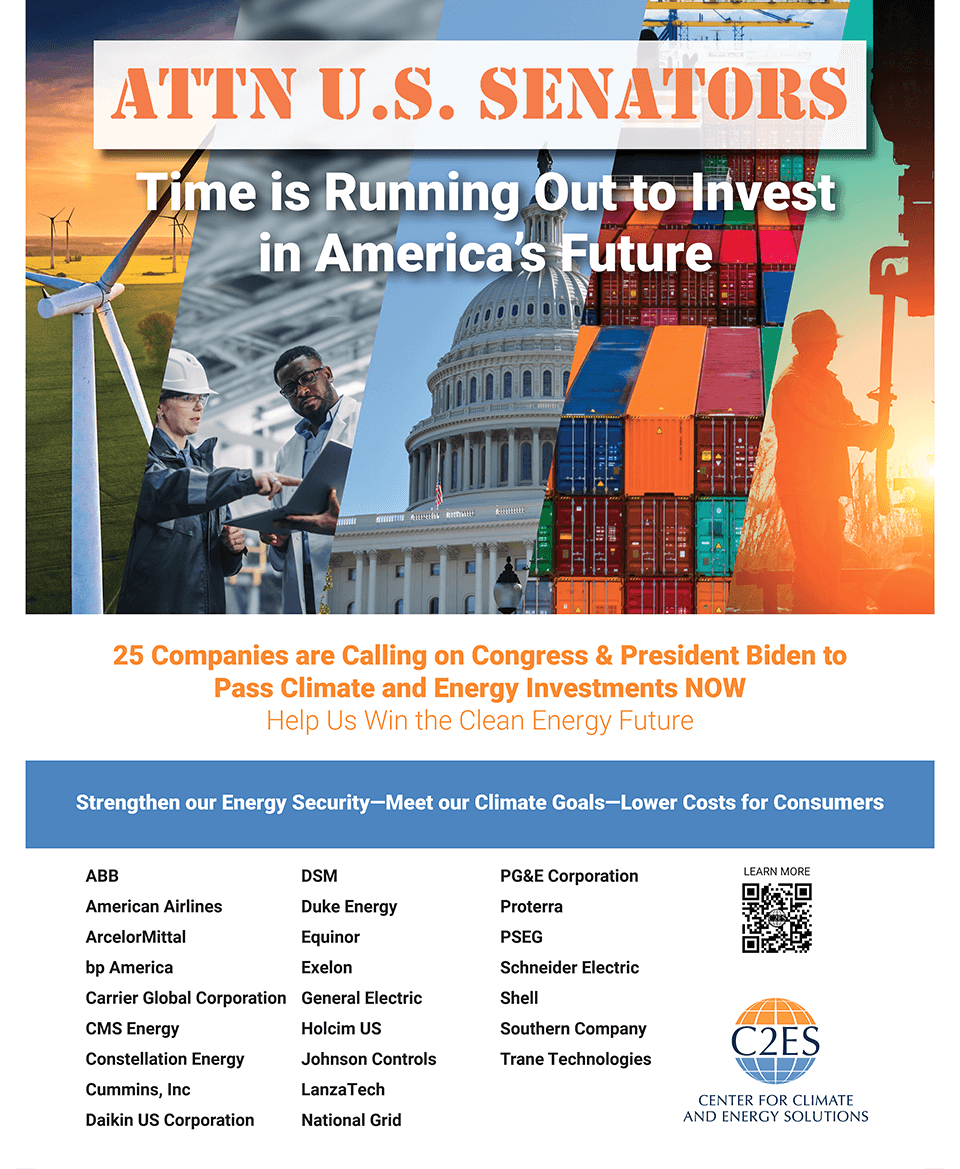Meeting our nation’s targets of cutting greenhouse gas emissions 50–52 percent below 2005 levels by 2030, and reaching net-zero emissions by 2050, will require wide-ranging innovations across the economy, including support for technologies and financial instruments, as well as providing the policy and regulatory certainty to enable markets to grow.
Working to decarbonize our economy won’t be easy. But the benefits of acting urgently and ambitiously dwarf the costs.
The legislative package Congress is currently considering should include technology inclusive investments, to drive economic opportunities in communities across the country that will produce and benefit from their deployment. Furthermore, these technologies can grow the economy while delivering on three critical objectives:
- Strengthen U.S. energy security
- Lower energy costs and volatility for consumers
- Meet our climate goals.
Strengthening Energy Security
The Russian invasion of Ukraine highlights our dependence on global fossil energy markets. To a great extent, investments in clean technologies will blunt the ability of adversarial nations to use fossil fuels as a geopolitical tool. Boosting demand for electric vehicles and a host of other policies can reduce oil prices. Significantly boosting domestic electricity production with zero-emission sources, including renewable energy, locally produced hydrogen and nuclear power will reduce dependence on natural gas. To help these industries – as well as sectors like manufacturing which will increasingly rely on access to zero-carbon energy to compete globally – to grow, it will be equally critical to build domestic markets and supply chains.
Other nations aren’t debating whether climate change will reshape the global economy – they’re making major investments to boost their energy security and orient their economies toward emerging market opportunities. The United States faces real economic and security risks if we don’t take serious steps to do the same.
For example, the EV tax credits under consideration could eliminate the equivalent of twice the total U.S. annual consumption of Russian oil. To ensure we don’t trade one dependency for another, addressing critical minerals and building a more diversified supply chain for these minerals that includes geopolitical allies will be critical. Still, moving away from fossil fuels can severely limit the ability of our global adversaries to upend our economic and energy security.
Lowering Consumer Costs
Rising energy costs have driven inflation and stressed pocketbooks for many households; a real and important issue for policymakers to address. Indeed, much of the discussion about climate focuses on the costs, but the rise in billion-dollar extreme weather events, and a growing recognition of the myriad economic costs of climate change suggests that the cost of inaction is even higher.
Over the long-term, the clean energy tax provisions from last year’s Build Back Better package would have not only delivered emissions reductions, but also helped lay a foundation for significant reductions in the cost of energy for consumers. Analysis has found that these tax credits could save U.S. electricity consumers as much as $5 billion by 2024. Given that energy is a significant driver of inflation, these incentives would also put downward pressure on inflation and drive down costs economywide.
Meeting our Climate Goals
Keeping on track to limit warming to 1.5 degrees will be difficult but is within reach. Congress has the power to help meet that goal by enabling catalytic investments that can accelerate the transition to a clean-energy economy. As the largest economy in the world, U.S. leadership is crucial to drive deployment of low- and zero-carbon technologies that will help meet global climate targets.
Accordingly, meeting our own Nationally Determined Contribution is key to our credibility on the global stage. The United States relies on its credibility in a range of geopolitical contexts, including trade. Our ability to access and compete in global markets will increasingly hinge on our efforts to address emissions, and global leadership on climate will have important political and economic benefits.
Why we are calling for action
While the House-passed version of Build Back Better is no longer on the table, it offers a mark for ambition we need to aim for to keep our climate targets within reach, enhance our energy security and lower costs (and volatility) for consumers.
With the mid-term elections around the corner, we are simply running out of time to enact meaningful climate legislation this year, if not longer. Companies – including those leading companies with whom we’ve been working – understand the urgency and are calling on Congress to get a bold climate package across the finish line.
We don’t have time to waste. To win in the clean energy future, the best time to invest is now.

